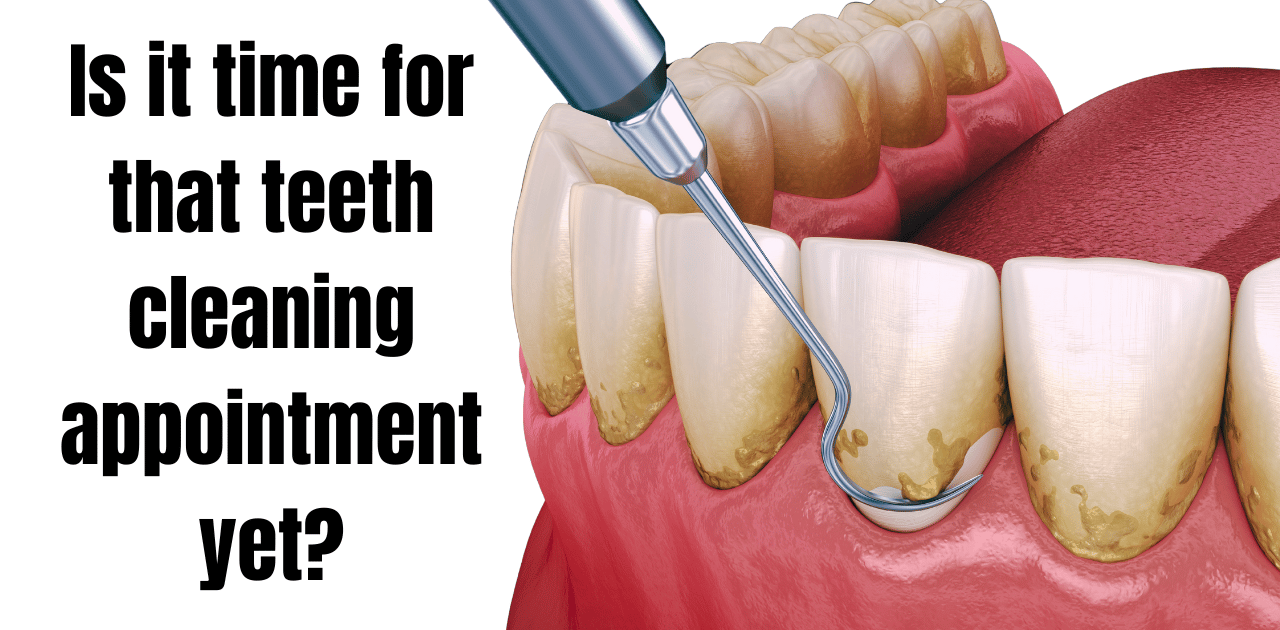How Often Should You Get Your Teeth Cleaned by a Dentist Near You?


Ever wondered how often is too often or whether you've been subconsciously postponing that scaling (professional teeth cleaning) appointment with the dentist? Well, we've got just the answers to those questions covered in this blog.
Standard Recommendations for Professional Cleanings
Every 6 months: This is the most common recommendation for individuals with healthy teeth and gums. A cleaning every six months helps prevent plaque buildup, tartar accumulation, cavities, and gum disease. For most people, this schedule works well in maintaining optimal oral health.
Every 12 months: If you have excellent oral hygiene, no history of gum disease, and a lower risk of dental problems, your dentist may recommend annual cleanings. However, this is usually only suitable for those who are vigilant about their oral care at home and have minimal risk factors for dental issues.
Factors That Might Require More Frequent Cleanings
Several factors can increase the need for more frequent cleanings beyond the standard 6 or 12-month intervals. These include:
Poor Oral Hygiene
If you're struggling with brushing and flossing thoroughly, plaque and tartar can build up more quickly. Even if you're brushing twice a day, if it's not done correctly, it can still leave behind harmful bacteria. In such cases, you may require cleanings more often—perhaps every 3 to 4 months—to prevent the development of gum disease or cavities.
Gum Disease (Gingivitis or Periodontitis)
Gingivitis: This is the earliest stage of gum disease, where gums become inflamed, red, and bleed during brushing. Regular cleanings every 3 to 4 months are often recommended to help reverse gingivitis and prevent it from progressing.
Periodontitis: A more advanced form of gum disease, periodontitis causes irreversible damage to the tissues and bone that support teeth. People with this condition may need cleanings every 3 to 4 months to keep the bacteria under control. If left untreated, can progress to the risk of tooth loss. Scaling and root planing, a deep cleaning procedure, might also be recommended for those with periodontitis.
Braces or Dental Appliances
Individuals with braces, bridges, or any other dental appliances (like dentures or retainers) are at a higher risk for plaque buildup around the brackets, wires, and other parts of the appliance. The complex structure of braces makes it harder to clean your teeth effectively at home. As a result, your dentist may recommend more frequent cleanings, typically every 3 to 4 months, to remove plaque and tartar buildup from hard-to-reach areas in between the teeth.
Certain Health Conditions
Some medical conditions can affect your oral health and increase your risk of dental issues, leading to the need for more frequent cleanings:
Diabetes: People with diabetes are at a higher risk of gum disease due to their body's reduced ability to fight infections. Regular cleanings every 3 to 4 months may be necessary to prevent complications.
Heart Disease: Conditions such as heart disease or high blood pressure can increase the risk of oral health problems. Patients with heart disease may be more susceptible to infections, including gum disease, which is linked to cardiovascular health.
Autoimmune Disorders: Diseases that weaken the immune system (e.g., lupus, rheumatoid arthritis) can make it harder for the body to fight off infections, including gum disease. More frequent cleanings can help manage this risk.
Pregnancy: Hormonal changes during pregnancy can increase the risk of gum disease, necessitating more frequent dental cleanings to maintain gum health.
Other Considerations That Might Require More Frequent Cleanings
Smoking or Tobacco Use
Tobacco users are at an increased risk for plaque and tartar buildup due to the chemicals in cigarettes, cigars, or smokeless tobacco products. These substances can also reduce blood flow to the gums, weakening their ability to heal. Smokers may require cleanings every 3 to 4 months to control plaque and tartar buildup and to reduce the risk of gum disease and tooth loss.
Diet
A diet high in sugar, sticky foods, or acidic foods can contribute to tooth decay and gum issues. Sugary and starchy foods fuel harmful bacteria that cause cavities, while acidic foods and drinks ( sodas) can erode the outer surface of the teeth (enamel). People with a high-sugar or acidic diet should either change the diet pattern into more healthier options or perhaps require scaling every 3 to 4 months, to prevent cavities and gum diseases.
High Cavity Risk
If you have a history of frequent cavities or a higher-than-average risk due to factors like thin enamel, a high-sugar diet, or a dry mouth (due to medications or health conditions), your dentist may recommend more frequent cleanings to help prevent cavities and other dental issues.
Conclusion
The frequency of your dental cleanings should be personalized based on your oral health needs and risk factors. Most people can maintain their oral health with cleanings every 6 to 12 months, but certain factors—such as poor oral hygiene, gum disease, braces, tobacco use, certain health conditions, and dietary habits—may necessitate more frequent visits, typically every 3 to 4 months.
Ultimately, your dentist will provide a cleaning schedule tailored to your specific needs after assessing your oral health. It’s best to follow your dentist’s advice and schedule regular appointments to maintain a healthy smile.
